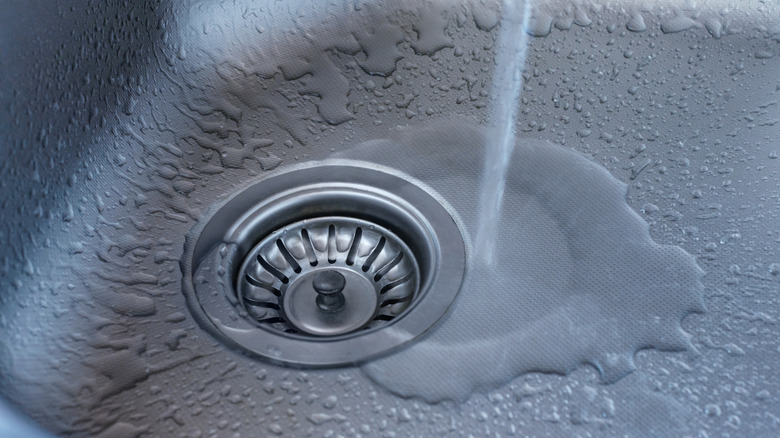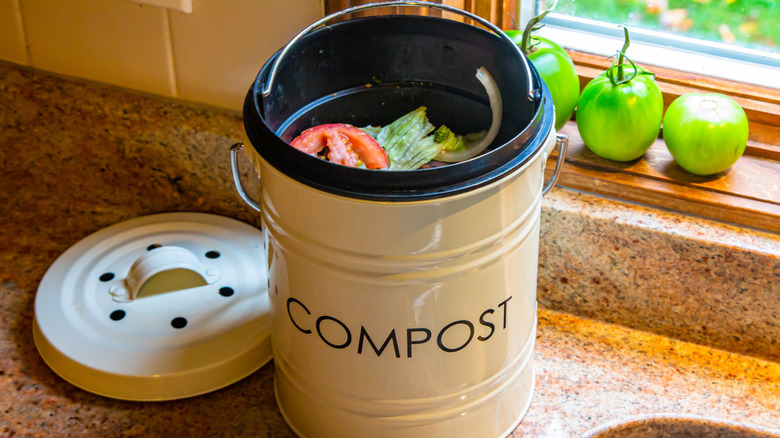Fibrous Foods Are Wreaking Havoc On Your Kitchen Sink
We may receive a commission on purchases made from links.
It's easy to think of your kitchen sink as a catch-all for whatever refuse piles up while cooking. However, neither your drain nor your garbage disposal is equipped to handle certain foods. Many everyday foods are fibrous, and those little strings can quickly gum up the works of kitchen systems.
A specific type of fiber to watch out for is resistant starch, which is a harder starch for the human body to break down when digested. Avoid putting whole pieces or scraps of these foods down the drain. As fibers come apart from the base food, they can easily wrap around the blades of a garbage disposal, decreasing its effectiveness. The fiber pieces can also form clumps when wet, causing blockages in kitchen pipes that result in slower drainage.
Fruits, vegetables, legumes, whole grains, nuts, and popcorn are all fibrous and can cause issues. Common fibrous fruits include apples, oranges, and avocados. Banana peels are especially fibrous and should never be sent down the drain. Dense veggies like carrots, broccoli, and artichokes are also fibrous. Chia seeds and bits of rice and pasta can also be detrimental to a kitchen sink's functions as these foods will expand in water and close off pipes.
How to properly dispose of fibrous food content
The simplest solution for ridding your kitchen of fibrous food waste is to simply throw it away instead of washing it down your drain. However, these scraps are also biodegradable and can be recycled for new purposes. Many households have embraced the concept of composting debris like potato skins and apple cores since the resulting broken-down foods can be used as a fertilizer for home gardens. Kitchen countertop compost bins in cute colors and designs will hold compostable waste odor-free. Major garbage bag manufacturers such as Glad also offer kitchen compost bags for easy cleanup.
Some surface starch content can safely be rinsed down the sink. It's recommended to rinse off rice before cooking, for example. Even then, it's smart to reserve your starchy water to thicken pasta sauces or to use as a secret ingredient in recipes like Ina Garten's potato salad.

